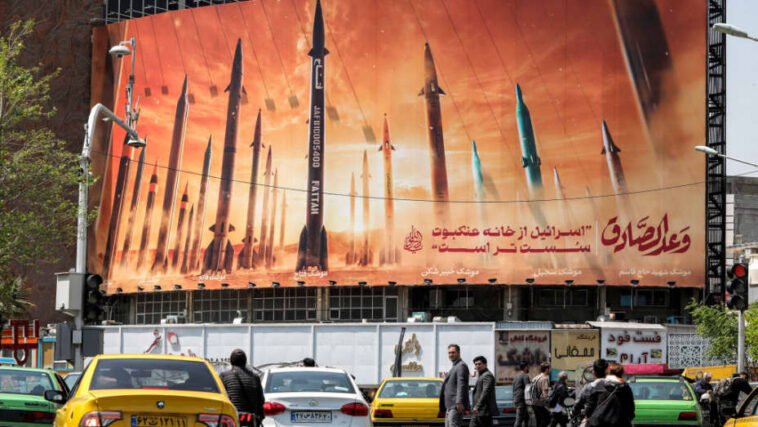Oil and gold prices surged following reports from US officials indicating that an Israeli missile had targeted Iran. Brent crude, the global benchmark for oil, saw a significant rise of 1.8% to reach $88 a barrel, while gold briefly approached a record high before settling back to nearly $2,400 per ounce.
Investors closely monitored Israel’s response to Iran’s recent direct drone and missile attack, with concerns mounting over the potential disruption of oil supplies in the Middle East due to escalating tensions.
Initially, oil prices soared by as much as 3.5%, reflecting the market’s apprehension. However, these gains tapered off after Iranian state media claimed that Isfahan province, where explosions had been reported, suffered “no damage.”
The sharp and sustained increase in oil prices poses a risk of fueling inflation, as countries heavily rely on oil for the production of essential fuels like petrol and diesel. Fuel and energy prices have been key drivers of the global rise in living costs over the past few years.
Randeep Somel, a fund manager at M&G Investment Management, highlighted concerns about inflation, noting that while inflation rates have been slowing, they remain above the Bank of England’s 2% target. Some economists predict that interest rate cuts may not occur until later in the year.
The uncertainty surrounding the situation in the Middle East prompted a surge in the price of gold, which is often viewed as a safe haven investment during times of geopolitical turmoil.
The heightened tensions in the region have raised concerns about the potential impact on shipping through the crucial Strait of Hormuz, through which approximately 20% of the world’s oil supply passes. Key members of the oil producers’ cartel OPEC, including Saudi Arabia, Iran, the UAE, Kuwait, and Iraq, heavily rely on this shipping route for oil exports.
Energy market expert Vandana Hari noted that the initial spike in oil prices reflected fears of renewed conflict between Israel and Iran, highlighting the fragile and volatile nature of the situation in the Middle East. The apprehension surrounding the region’s instability also reverberated in Asian stock markets, with indices such as Japan’s Nikkei 225, Hong Kong’s Hang Seng, and South Korea’s Kospi experiencing declines amid concerns over escalating tensions.



GIPHY App Key not set. Please check settings